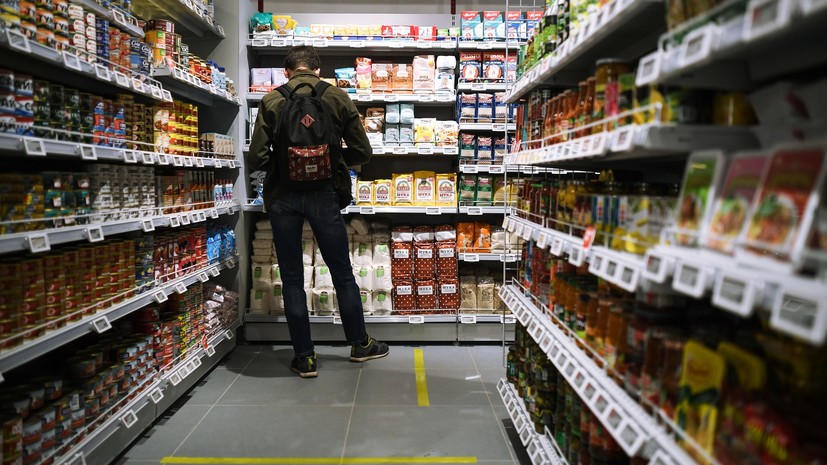By the end of 2021, a bill may be submitted to the State Duma, the implementation of which will allow stores and manufacturers of a number of goods, instead of recycling, to donate them to charity without taxing this process.
This initiative was put forward by the deputies from "United Russia" together with members of public organizations and business associations.
According to the chairman of the State Duma Committee on Youth Policy Artyom Metelev, this will require amendments to the Tax Code.
According to him, on Thursday, November 18, a meeting was held at the party's site with the participation of representatives of the Ministry of Finance and the Ministry of Economic Development, during which the relevance of this bill was confirmed.
“Today, when retail has food, basic necessities, goods that have not yet expired, it chooses to dispose of them or donate them to a charitable foundation. Tax legislation does not allow manufacturers to transfer these goods to those organizations that are ready to accept them, or to distribute them to people, because it is more profitable to dispose of them - in this way companies can compensate for VAT tax (from 10% to 20%), "Metelev explained.
He said that about 17 million tons of products are utilized in Russia annually.
First, it costs about 1.5 trillion rubles.
Secondly, according to experts, dumped goods emit about 2.5 million tons of ammonia, carbon dioxide and methane.
At the same time, a more rational use of at least part of this product (food sharing) can help millions of Russians, the deputies believe.
“During the pandemic, within the framework of the“ We are Together ”campaign, almost 7 million people received charitable support from volunteer organizations.
Its volume can be multiplied if a business is able to transfer such goods to socially oriented NGOs without paying VAT.
Today he is forced to pay 20% in fact for doing a good deed, ”Metelev emphasized.
“We want to amend two articles of the Tax Code (170 and 171) and make sure that businesses can transfer goods without taxes within 1% of turnover,” the deputy told the Parliamentary Gazette.
"These will not be excisable goods: not luxury goods, cigarettes or alcohol, but necessary things."
Dmitry Vyatkin, the first deputy head of United Russia in the State Duma for legislative activity, noted that a number of issues for the operation of this system need to be resolved at the subordinate level.
In particular, clarify the range of possible recipients of goods, their list and storage conditions.
Vyatkin also stressed that it should be determined how much time should remain before the expiration date of the product.
“It is important that, on the one hand, companies do not have problems with the tax authorities, and on the other hand, that for those socially-oriented NGOs that accept these goods, there are clear, understandable rules of action,” he said.
Commenting on this initiative, Dmitry Leonov, Deputy Chairman of the Board of Rusprodsoyuz, drew attention to the problem of recycling suitable products.
“From a social point of view, this is unacceptable wastefulness.
Moreover, in a situation with today's level of food inflation and declining real incomes of the population.
Alternative methods of eliminating write-offs of expired products correspond to global environmental trends, "he said in an interview with RT.
The expert drew attention to the fact that now there are gaps in tax legislation that hinder the implementation of socially oriented projects related to the transfer of products to those in need.
At the same time, Leonov added that some retail chains have already found a solution to provide additional discounts as the goods approach the expiration date.
“The closer the expiration date, the higher the discount.
For the consumer, this is only a plus, because he will be able to purchase a quality product at a lower price, realizing that it must be consumed quickly.
With this approach, retail trade successfully solves the issue of “zero” write-offs of delinquencies, ”Leonov explained.
In addition, he spoke about the foreign experience of regulating the sale of goods, the expiration date of which is coming to an end.
According to the deputy head of Rusprodsoyuz, in Europe, expiring products and substandard goods are trying to distribute to the homeless and the poor.
“Such products do not pose a threat to consumers, but they compare favorably in terms of price offer.
This is how the Wefood chain operates in Denmark ... In France, supermarket owners are subject to fines if they do not sign contracts with charitable organizations that distribute food, ”he said.
In turn, Ilya Lomakin-Rumyantsev, the former chairman of the AKORT Presidium, director of the Skolkovo School's Consumer Market Development Center, also called the initiative reasonable, noting several subtleties.
“This, of course, does not apply to all waste, because you can only transfer to those in need that is to be used as food.
Strictly speaking, the business does not write off such types of goods as waste.
The question is how to make sure that goods with an expiration date can be sent to charitable foundations on reasonable terms for business so that it is not additionally burdened with any taxes, ”said the interlocutor of RT.
“A business that is already doing a good deed loses its potential benefit, but in today's reality it also pays taxes.
So this initiative is quite a reasonable thing, ”concluded Lomakin-Rumyantsev.

